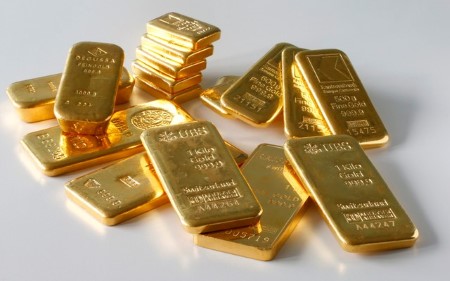




Philippines Trade Update: Imports weaken on tepid demand
 DOWNLOAD
DOWNLOAD

Policy Rate Updates: BSP outlook — cloudy with a chance of rate cut
 DOWNLOAD
DOWNLOAD

January Economic Update: Growth slows, prices rise
 DOWNLOAD
DOWNLOAD


Gold gains as traders buy on dips, await US inflation data

Dec 18 – Gold gained on Monday as traders purchased bullion on price dips, while their focus shifted to key US inflation data for signals on the Federal Reserve’s interest rate direction post its recent dovish tilt.
Spot gold was up 0.4% at USD 2,026.59 per ounce, as of 2:15 p.m. ET (1915 GMT). US gold futures settled 0.2% higher at USD 2040.5.
“The market is in a pause mode waiting for the next major fundamental economic data point or news, but it’s a buy-the-dip mentality among gold traders with the bullish technical posture,” said Jim Wyckoff, senior analyst at Kitco Metals.
The underlying factors keeping a floor under the gold market are the weaker US dollar, easier monetary policy and some safe-haven demand from heightened tensions in the Middle East, Wyckoff added.
Last week, the Federal Reserve kept interest rates unchanged and indicated the historic tightening of monetary policy was likely over as inflation fell faster than expected.
But Chicago Fed President Austan Goolsbee said the US central bank is not pre-commiting to cutting interest rates soon and swiftly.
Traders are pricing in a 69% chance of a Fed rate cut in March, according to the CME FedWatch tool.
Lower bond yields and interest rates reduce the opportunity cost of holding non-interest-bearing.
Benchmark US 10-year Treasury yields were hovering near their lowest level since July. US/
Traders now await a slew of US economic data, including the November core personal consumption expenditure (PCE) index report on Friday.
Downward trends in US rates are often accompanied by a stronger bullish move of gold and this asymmetric trend might continue and favor gold, especially in the first half of next year and prices could average USD 2,050 an ounce in 2024, Intesa Sanpaolo said in a note.
Spot silver fell 0.3% to USD 23.76 per ounce, while platinum rose 0.7% to USD 946.02. Palladium was up 0.6% to USD 1,180.15, hitting a two-and-a-half-month high.
(Reporting by Anushree Mukherjee in Bengaluru; Additional reporting by Daksh Grover, editing by Ed Osmond, Shweta Agarwal, and Krishna Chandra Eluri)
This article originally appeared on reuters.com





 By Reuters
By Reuters